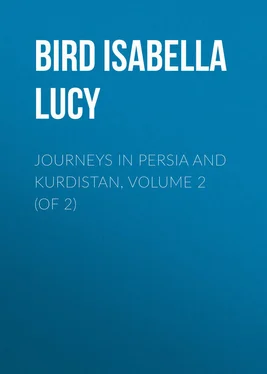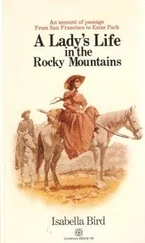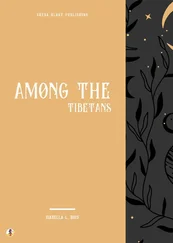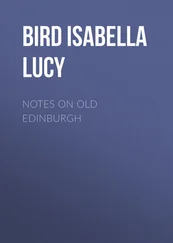Isabella Bird - Journeys in Persia and Kurdistan, Volume 2 (of 2)
Здесь есть возможность читать онлайн «Isabella Bird - Journeys in Persia and Kurdistan, Volume 2 (of 2)» — ознакомительный отрывок электронной книги совершенно бесплатно, а после прочтения отрывка купить полную версию. В некоторых случаях можно слушать аудио, скачать через торрент в формате fb2 и присутствует краткое содержание. ISBN: , Жанр: foreign_language, foreign_antique, foreign_prose, Путешествия и география, на английском языке. Описание произведения, (предисловие) а так же отзывы посетителей доступны на портале библиотеки ЛибКат.
- Название:Journeys in Persia and Kurdistan, Volume 2 (of 2)
- Автор:
- Жанр:
- Год:неизвестен
- ISBN:http://www.gutenberg.org/ebooks/38828
- Рейтинг книги:5 / 5. Голосов: 1
-
Избранное:Добавить в избранное
- Отзывы:
-
Ваша оценка:
- 100
- 1
- 2
- 3
- 4
- 5
Journeys in Persia and Kurdistan, Volume 2 (of 2): краткое содержание, описание и аннотация
Предлагаем к чтению аннотацию, описание, краткое содержание или предисловие (зависит от того, что написал сам автор книги «Journeys in Persia and Kurdistan, Volume 2 (of 2)»). Если вы не нашли необходимую информацию о книге — напишите в комментариях, мы постараемся отыскать её.
Journeys in Persia and Kurdistan, Volume 2 (of 2) — читать онлайн ознакомительный отрывок
Ниже представлен текст книги, разбитый по страницам. Система сохранения места последней прочитанной страницы, позволяет с удобством читать онлайн бесплатно книгу «Journeys in Persia and Kurdistan, Volume 2 (of 2)», без необходимости каждый раз заново искать на чём Вы остановились. Поставьте закладку, и сможете в любой момент перейти на страницу, на которой закончили чтение.
Интервал:
Закладка:
Ophthalmia, glaucoma, bulging eyeballs, inflamed eyes and eyelids, eczema, rheumatism, dyspepsia, and coughs are the prevailing maladies, and among men, bad headaches, which they describe as periodical and incapacitating, are common. The skin maladies and some of the eye maladies come from dirt, and the parasites which are its offspring. Among the common people the clothes are only washed once a year, and then in cold water, with the root of a very sticky soap wort. They attribute all ailments but those of the skin and eyes to "wind." Rheumatism doubtless comes from sleeping in cotton clothing, and little enough of it, on the damp ground.
There are no sages femmes . Every woman is supposed to be able to help her neighbour in her hour of need. Maternity is easy. The mother is often at work the day after the birth of her child, and in less than a week regains her usual strength.
Possession by bad spirits is believed in, and cowardice is attributed to possession. In the latter case medicine is not resorted to, but a mollah writes a text from the Koran and binds the paper on the coward's arm. If this does not cure him he must visit a graveyard on the night of the full moon, and pass seven times under the body of one of the sculptured lions on the graves, repeating an Arabic prayer.
This pass gives a little rest. It is solitary, cold (the mercury 48° at 10 p. m.), and very windy. I appreciate the comparatively low temperature all the more because the scenery beyond the Zalaki valley, in which scorched valleys and reddish rocky ranges are repeated ad nauseam , lies under a blazing sun and in a hot dust haze like that of the Indian plains. The ridge is only just wide enough for the camps, and falls down in abrupt descents to the source of the Ab-i-Sefid. Tremendous precipices and the naked peaks of the Kala Kuh surround us, and to the east the Zard Kuh and the long straight-topped range of the Kuh-i-Gokun (or Kainu?), deeply cleft, to allow of the exit of the Ab-i-Gokun, wall in the magnificent prospect, woods and streams and blue and violet depths suggesting moisture and coolness. The ridge has a remarkably rich alpine flora.
Life is now only a "struggle for existence" on the lower altitudes, with their heat and hubbub; there is no comfort or pleasure in occupation under 9000 feet. Here there are only the sick people of the camps to attend to. The guides and guards all need eye-lotion, one bad wound needs dressing, and the Khan's brother has had fever severely, which is cured, and he offers me as a present a boy of five years old. Aslam Khan's face of Judas is not for nothing, but his brother is beautiful, and has the face of St. John.
I. L. B.LETTER XIX
After that uplifted halt, which refreshed the Europeans but did not suit the health of the attendants, we descended, crossed the Zalaki valley and a low ridge, with populous camps, into the valley of the Mauri Zarin, where the nomads were busy harvesting, forded the river, and proceeded up its left bank to a dusty level on which a deep ravine opens, apparently blocked up by a castellated and nearly inaccessible rock of great height. At this place, where the Badush joins the Mauri Zarin, we were obliged to camp close to some Ilyat tents, which involved crowds, many demands, much noise, and much vigilance.
We were then in the territory of Mirab Khan, the chief of the Isawand tribe, between whom and Aslam Khan there is a blood feud, with most deadly enmity. He sent word that he was not well, and asked the Agha to go to see him, which he did, telling him that the Hakīm would also visit him. Later, taking Mirza and two guides, I forded and followed up the Ab-i-Arjanak for two miles by a most remarkable cañon. The lower part of its sides is steep and rocky, though not too steep for the growth of tamarisk scrub and much herbage, but above are prodigious conglomerate cliffs, and below, the river, which narrows to a stream, is concealed by enormous masses of conglomerate rock. This cleft must be fully 800 feet below the heights which surround it. A ridge runs across it at Arjanak, and the river passes underground.
The village and "Diz" 6 6 A "Diz" is a natural fort believed to be impregnable.
of Mirab Khan are reached by a frightfully steep ascent. Arjanak has been built for security on some narrow ledges below these colossal walls. It is a mere eyrie, a collection of rude stone hovels, one above the other, among which the Khan's house is distinguishable only by its balakhana and larger size. The paths on the dusty hillside are so narrow and shelving that I needed a helping hand as well as a stick to enable me to reach a small, oblong, rug-covered platform under some willow trees, where Mirab Khan received me, with a very repulsive-looking Seyyid scribe seated by him in front of a samovar and tea equipage, from which he produced delicious tea, flavoured with lime-juice. The Khan was courteous, i. e. he rose, and did not sit down till I did.
He is a most deplorable-looking man, very tall and thin, with faded, lustreless gray eyes, hollow, sallow cheeks, and a very lank, ugly, straight-haired beard, light brown in the middle. He and Khaja Taimur look more like decayed merchants than chiefs of "tribes of armed horsemen." I was very sorry for him, for he evidently suffers much, but then and afterwards he impressed me unfavourably, and I much doubt his good faith. He said he heard I should spend two or three days at Arjanak, and all he had was mine. He was not "like some people," he said, "who professed great friendship for people and then forgot all about them. When I make a friendship," he said, "it is for ever." I asked him if his tribe was at peace. "Peace," he replied sententiously, "is a word unknown to the Bakhtiaris." In fact he has more than one blood feud on hand. He complained bitterly of the exactions of Persia, and added the conjecture, expressed by many others, that England would shortly occupy Luristan, and give them equity and security. Another Khan of some power said to me that if England were to occupy south-west Persia, he would help her with 400 horsemen, and added, "An English fleet at Basrah, with an English army on board, would be the best sight which Bakhtiari eyes could see." 7 7 To English people the Bakhtiaris profess great friendliness for England, and the opinion has been expressed by some well-informed writers that, in the event of an English occupation of the country, their light horse, drilled by English officers, would prove valuable auxiliaries. I am inclined, however, to believe that if a collision were to occur in south-west Persia between two powers which shall be nameless, the Bakhtiari horsemen would be sold to the highest bidder.
I had to hear the long story of the Khan's complicated maladies, to look at many bad eyes, and at the wounds of a poor fellow suffering from snake-bite, who was carried on another man's back, and to promise to bring up my medicine chest the following day, the fame of the "leather box" having reached Arjanak.
On my way I had called at the haram , and the ladies accompanied me to the durbar , conduct which I think was not approved of, as they told me the next morning that they must not go there. After the Agha returned, the three wives and many other women clustered timidly round me. Two of them are very bright and pretty, and one, a Persian, very affectionate in her manner. She held my hand all the time. There was also a handsome daughter, with a baby, the discarded wife of a son of the next Khan. In winter, they said, they amuse themselves by singing, and playing with their children, and by making a few clothes, and the Persian embroiders boys' caps.
Aziz Khan has been irrepressible lately. His Arab mare is his idol, not because she is a lovable animal and carries him well, but because she is valuable property. He fusses about her ceaselessly, and if he were allowed would arrange the marches and the camping-grounds with reference solely to her well-being. She is washed from her nose to the tip of her tail every evening, clothed, and kept by the camp-fire. She is a dainty, heartless, frivolous creature, very graceful and pretty, and in character much like a selfish, spoilt woman.
Читать дальшеИнтервал:
Закладка:
Похожие книги на «Journeys in Persia and Kurdistan, Volume 2 (of 2)»
Представляем Вашему вниманию похожие книги на «Journeys in Persia and Kurdistan, Volume 2 (of 2)» списком для выбора. Мы отобрали схожую по названию и смыслу литературу в надежде предоставить читателям больше вариантов отыскать новые, интересные, ещё непрочитанные произведения.
Обсуждение, отзывы о книге «Journeys in Persia and Kurdistan, Volume 2 (of 2)» и просто собственные мнения читателей. Оставьте ваши комментарии, напишите, что Вы думаете о произведении, его смысле или главных героях. Укажите что конкретно понравилось, а что нет, и почему Вы так считаете.












